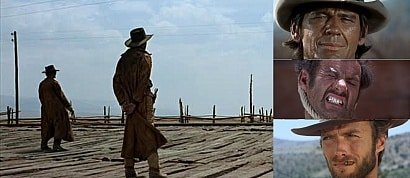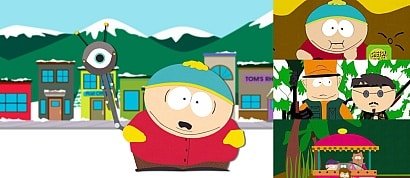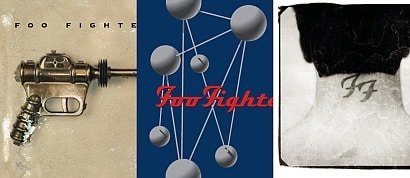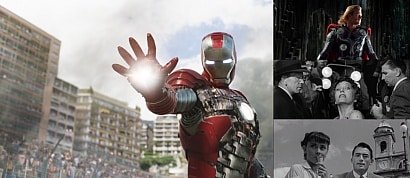Sort by:
Showing 1-50 of 310
Rating:
List Type:
 Add items to section
Add items to section
A
Achelous
• The god associated with the Achelous River, the largest river in Greece.
• The son of the Titans Oceanus and Tethys. He was also said to be the father of the Sirens, several nymphs, and other offspring.
• Achelous was able to change his shape, and in the form of a bull, he wrestled Heracles for the right to marry Deianeira, but lost. He was also involved in the legend of the Argive hero Alcmaeon.


Acheron
• The god of the underworld river and lake of pain.
• Charon ferried the souls of the dead across its dark waters in his skiff.
• Acheron is the son of Helios and either Gaia or Demeter, who was turned into the Underworld river bearing his name after he refreshed the Titans with drink during their contest with Zeus.
• Acheron is also the father of Ascalaphus by either Orphne or Gorgyra.


Achilles
Achos
• Member of The Algea they were the personified spirits of pain and suffering (body and mind), grief, sorrow and distress. They were the bringers of weeping and tears.
• There are three known Algea: Lupe, Achos, and Ania.
• The Algea are represented as the children of Eris. They were siblings to Lethe, Limos, Horkos, Ponos and many other personifications.


Adikia
Aegisthus
• Son of Thyestes and Thyestes's own daughter Pelopia, an incestuous union motivated by his father's rivalry with the house of Atreus for the throne of Mycenae.
• Aegisthus murdered Atreus in order to restore his father to power, ruling jointly with him, only to be driven from power by Atreus's son Agamemnon.
• While Agamemnon laid siege to Troy, his estranged queen Clytemnestra took Aegisthus as a lover. The couple killed Agamemnon upon the king's return, making Aegisthus king of Mycenae once more. Aegisthus ruled for seven more years before his death at the hands of Agamemnon's son Orestes.


Aello
Aergia
Aerope
• Was a Cretan princess as the daughter of Catreus, king of Crete. She was the sister to Clymene, Apemosyne and Althaemenes.
• Her father Catreus gave her to Nauplius, to be drowned, or sold abroad. But Nauplius spared her, and she became the wife of Atreus, and the mother of Agamemnon and Menelaus.
• While the wife of Atreus, she became the lover of his brother Thyestes, and gave Thyestes the golden lamb, by which he became the king of Mycenae.


Aesimus
• Son of Autolycus and Amphithea and a descendant of Hermes.
Aeson
• King of Iolcus in Thessaly.
• The son of Cretheus and Tyro. He had two brothers Pheres and Amythaon. Through his mother Tyro who consorted with the sea god Poseidon, he had two half-brothers, Neleus and Pelias.
• Aeson was the father of Jason and Promachus with Alcimede or Polymede.
• He was imprisoned by his half-brother Pelias, and when Pelias intended to kill him he committed suicide. In another story, he was killed by Jason's wife Medea, who brought him back to life as a young man.


Aether
Aetna
Agamemnon
• King of Mycenae, the son, or grandson, of King Atreus and Queen Aerope, the brother of Menelaus, the husband of Clytemnestra and the father of Iphigenia, Electra, Orestes and Chrysothemis.
• When Menelaus's wife, Helen, was taken to Troy by Paris, Agamemnon commanded the united Greek armed forces in the ensuing Trojan War.
• Upon Agamemnon's return from Troy, he was killed by Aegisthus, the lover of his wife Clytemnestra.


Aglaea
• The youngest of the Charites, the three daughters of Zeus and the Oceanid Eurynome. The goddess of beauty, splendour, glory and adornment.
• Aglaea's two sisters are Euphrosyne and Thalia. Together they were responsible for overseeing all feasts and dances. They were part of the retinue of Aphrodite with Aglaea sometimes acting as her messenger.
• Aglaea was married to Hephaestus, after his divorce from Aphrodite, and by him she became mother of Eucleia, Eupheme, Euthenia and Philophrosyne


Aglaope
Alcippe
Alcyone
• Alcyone was a Thessalian princess, the daughter of King Aeolus of Aeolia, either by Enarete or Aegiale. She was the sister of Salmoneus, Athamas, Sisyphus, Cretheus, Perieres, Deioneus, Magnes, Calyce, Canace, Pisidice and Perimede.
• Later on, Alcyone became the queen of Trachis after marrying King Ceyx. The couple were very happy together in Trachis.
• This couple often sacrilegiously called each other Zeus and Hera. This angered Zeus, so while Ceyx was at sea, he killed Ceyx with a thunderbolt. Soon after, Morpheus, the god of dreams, disguised as Ceyx, appeared to Alcyone to tell her of her husband's fate. In her grief she threw herself into the sea. Out of compassion, the gods changed them both into halcyon birds, named after her.


Aletheia
Alyzeus
Amphithea
Amphitrite
Anaideia
Andromache
• The wife of Hector, daughter of Eetion, and sister to Podes.
• She was born and raised in the city of Cilician Thebe, over which her father ruled.
• During the Trojan War, after Hector was killed by Achilles and the city taken by the Greeks, the Greek herald Talthybius informed her of the plan to kill Astyanax, her son by Hector, by throwing him from the city walls.
• This act was carried out by Neoptolemus who then took Andromache as a concubine and Hector's brother, Helenus, as a slave.
• By Neoptolemus, she was the mother of Molossus, Pielus and Pergamus.
• When Neoptolemus died, Andromache married Helenus and became Queen of Epirus. Helenus's son, Cestrinus, was by Andromache.
• Andromache faithfully continued to make offerings at Hector’s cenotaph. Andromache eventually went to live with her youngest son, Pergamus in Pergamum, where she died of old age.


Andromeda
• The daughter of the king of Aethiopia, Cepheus, and his wife, Cassiopeia.
• When Cassiopeia boasts that she is more beautiful than the Nereids, Poseidon sends the sea monster Cetus to ravage the coast of Aethiopia as divine punishment.
• Andromeda is chained to a rock as a sacrifice to sate the monster, but is saved from death by Perseus, who marries her and takes her to Greece to reign as his queen.


Angelos
• Daughter of Zeus and Hera.
• Angelos was raised by nymphs to whose care her father had entrusted her. One day she stole her mother Hera's anointments and gave them away to Europa. To escape Hera's wrath, she had to hide first in the house of a woman in labor, and next among people who were carrying a dead man.
• Hera eventually ceased from prosecuting her, and Zeus ordered the Cabeiroi to cleanse Angelos. They performed the purification rite in the waters of the Acherusia Lake in the Underworld. Consequently, she received the world of the dead as her realm of influence, and was assigned an epithet katachthonia.


Ania
• Member of The Algea they were the personified spirits of pain and suffering (body and mind), grief, sorrow and distress. They were the bringers of weeping and tears.
• There are three known Algea: Lupe, Achos, and Ania.
• The Algea are represented as the children of Eris. They were siblings to Lethe, Limos, Horkos, Ponos and many other personifications.


Antaeus
• Giant King of Libya and member of the Libyan Royal Family.
• He was the half-giant son of Poseidon and Gaia, who lived in the interior desert of Libya. His wife was the goddess Tinge, and he had a daughter named Alceis or Barce. Another daughter, Iphinoe, consorted with Heracles.
• Antaeus would challenge all passers-by to wrestling matches and remained invincible as long as he remained in contact with his mother, the earth. As Greek wrestling, typically attempted to force opponents to the ground, he always won, killing his opponents. He built a temple to his father using their skulls.
• Antaeus fought Heracles as he was on his way to the Garden of Hesperides as his 11th Labour. Heracles realized that he could not beat Antaeus by throwing or pinning him. Instead, he held him aloft and then crushed him to death in a bear hug.


Antheia
Anticlea
• Queen of Ithaca as the wife of King Laërtes.
• The daughter of Autolycus and Amphithea.
• The divine trickster and messenger of the gods, Hermes, was her paternal grandfather.
• Anticlia was the mother of Odysseus and Ctimene by her husband Laërtes.
• When she was young, Anticlea served the goddess Artemis, and accompanied in hunting bearing arrow and quiver.
• Odysseus makes a trip to the underworld to seek the advice of the dead prophet Tiresias. In the underworld, he encounters many spirits, among them is that of his mother, Anticlea.


Antigone
• Antigone is a daughter of the accidentally incestuous marriage between King Oedipus of Thebes and his mother Jocasta. She had two brothers, Eteocles and Polyneices, and a younger sister, Ismene.
• Eventually her father is banished and dies. Then she and her siblings are left in the care of her uncle Creon. Her brothers start fighting for the kingdom.
• Polyneices is killed and loses the war. Creon does not bury him and proclaims that he will kill anybody who does. Antigone loves her brother and is brave and goes and buries her brother.
• A guard saw her and told her uncle. She is sentenced to die in a cave. Antigone goes proudly to her death.
• Creon's son Haimon, who was in love with her, finds out and his mad at his father. He goes to rescue Antigone but found she had hung herself. Haimon then kills himself as well. When this is found out, Haimon's mother Eurydice, kills herself.


Apate
• The goddess and personification of deceit.
• The daughter of the primordial deities Erebus and Nyx.
• The affair between Zeus, king of the gods, and Semele, a Theban princess who bore him the god of wine, Dionysus. After knowing this infidelity of her husband, Hera sought the help of Apate in her scheme of punishing the mortal paramour of Zeus. Apate then willingly gave her a magical girdle which Hera then used to trick Semele into asking Zeus to appear before in his true form which resulted in her death, because no mortal being can directly gaze the presence of a god.


Aphrodite
• Goddess of love, pleasure, passion, procreation, fertility, beauty and desire.• The daughter of Zeus and the Oceanid Dione, or perhaps born from the sea foam after Uranus' blood dripped into the sea after being castrated by his youngest son, Cronus, who then threw his father's genitals into the sea.
• Married to Hephaestus, although she had many adulterous affairs, most notably with Ares.
Apollo
Arachne
• Arachne was a great mortal weaver, daughter of Idmon, who boasted that her skill was greater than that of Athena, goddess of wisdom and strategy.
• Challenged Athena, goddess of wisdom and crafts, to a weaving contest. When Athena could find no flaws in the tapestry Arachne had woven for the contest, the goddess became enraged and beat the girl with her shuttle. After Arachne hanged herself out of shame, she was transformed into a spider.


Ares
Ariadne
Arke
• One of the daughters of Thaumas, and sister to the rainbow goddess Iris.
• She and Iris were both messenger goddesses.
• During the Titanomachy, she sided with the Titans against the Olympian gods. She became the messenger for the Titans, while Iris became the messenger of the Olympian Gods.
• When the Olympian gods won, Zeus punished Arke. She was deprived of her wings and cast into Tartarus, together with the vanquished Titans.
• Arke's wings were later given to Peleus and Thetis as a gift on their wedding day. Thetis later gave them to her son Achilles.


Artemis
Ascalaphus
• The son of Acheron and Orphne.
• Ascalaphus was the custodian of the orchard of Hades.
• He told the other gods that Persephone had eaten pomegranate seeds in the Underworld. Because she had tasted food in the underworld, Persephone was obliged to return to the Underworld and spend four months there every year.
• Demeter was so angry, she buried Ascalaphus beneath a heavy rock in the Underworld. When Heracles went to the underworld, he rolled the stone away and released him from his prison.
• Demeter transformed Ascalaphus into an eagle owl. According to another myth, Persephone herself changed him into an eagle owl by sprinkling him with water of the river Phlegethon. As an owl, he became the familiar bird of Hades, god of the underworld.


Asclepius
• A hero and god of medicine. Asclepius represents the healing aspect of the medical arts.
• Asclepius was the son of Apollo and a mortal woman named Koronis, who was a princess of Tricca in Thessaly. When she displayed infidelity by sleeping with a mortal named Ischys, Apollo found out with his prophetic powers and killed Ischys. Koronis was killed by Artemis for being unfaithful to Apollo and was laid out on a funeral pyre to be consumed, but Apollo rescued the child by cutting him from Koronis womb.
• Apollo named the rescued baby Asclepius and reared him for a while and taught him many things about medicine. However, like his half-brother, Aristaeus, Asclepius had his formal education under the centaur Chiron who instructed him in the art of medicine.
• Asclepius was married to Epione, with whom he had five daughters: Hygieia, Panacea, Aceso, Iaso, and Aegle, and three sons: Machaon, Podaleirios and Telesphoros. He also sired a son, Aratus, with Aristodeme.


Asteria
• The Titan goddess of falling stars and perhaps of nighttime divinations such as oneiromancy and astrology.
• Daughter of the Titans Coeus and Phoebe and the sister of Leto.
• By the Titan Perses she had a single child, a daughter named Hecate, the goddess of witchcraft.
• After the fall of the Titans, Zeus chased Asteria across the sky but she escaped him by transforming herself into a quail and leaping into the sea to became the island of Delos.
• When her sister Leto, impregnated by Zeus, went into labour, Asteria was the only place on earth willing to receive her, defying Hera's orders that forbade Leto any shelter.
• After Apollo and Artemis were born on her, the island received the name of Delos, and Apollo fixed it in place, making it his sacred land.


Astraea
• The virgin goddess of justice, innocence, purity and precision.
• A daughter of Astraeus and Eos.
• Was the last of the immortals to live with humans during the Golden Age. Astraea abandoned the earth during the Iron Age. Astraea will one day come back to Earth, bringing with her the return of the utopian Golden Age of which she was the ambassador.


Astraeus
• The Titan god of stars and planets and of the art of astrology.
• Astraeus and Eos produce the winds (Zephyrus, Boreas, Notus, Eurus), as well as Eosphorus and the stars. A few sources mention another daughter, Astraea.
• Astraeus is a second-generation Titan descended from Crius and Eurybia.
• He is also sometimes associated with Aeolus, the Keeper of the Winds, since winds often increase around dusk.


Astris
Astyanax
• The son of Hector, the crown prince of Troy, and his wife, Princess Andromache of Cilician Thebe.
• His birth name was Scamandrius, but the people of Troy nicknamed him Astyanax, because he was the son of the city's great defender and the heir apparent's firstborn son.
• During the Trojan War, Andromache hid the child in Hector's tomb, but the child was discovered. His fate was debated by the Greeks, for if he were allowed to live, it was feared he would avenge his father and rebuild Troy. He was killed by Neoptolemus, who threw the infant from the walls, as predicted by Andromache.


Atalanta
• The daughter of Shoeneus or Iasius and Klymene.
• Her father wanted a son so badly that when Atalanta was born, he left her on a mountain top to die. His wife hated this, tried to reason with her husband but he only threatened that she would soon join her daughter. She then hung herself.
• Artemis sent a she-bear to suckle Atalanta. When she was still young, a group of hunters found her and trained her to be an excellent huntress.


Ate
• The goddess of mischief, delusion, ruin, and blind folly, rash action and reckless impulse who led men down the path of ruin. She also led both gods and men to rash and inconsiderate actions and to suffering.
• The eldest daughter of Zeus, with no mother mentioned or was the daughter of Eris.
• She was thrown out of Olympus, and never permitted to return. Zeus held Ate to blame for blinding him to Hera's trickery which resulted in the loss of the birthright Zeus intended for his son Heracles: to be lord over the Argives.


Athena
• Goddess of wisdom, handicraft, and warfare.
Atlas
• The son of the Titan Iapetus and the Oceanid Asia or Clymene. He was a brother of Epimetheus and Prometheus. He had many children, mostly daughters, the Hesperides, the Hyades, the Pleiades, and the nymph Calypso.
• Atlas and his brother Menoetius sided with the Titans in their war against the Olympians, the Titanomachy. When the Titans were defeated, many of them were confined to Tartarus, but Zeus condemned Atlas to stand at the western edge of the earth and hold up the sky on his shoulders.
• Perseus arrives in Atlas's Kingdom and asks for shelter, declaring he is a son of Zeus. Atlas, fearful of a prophecy that warned of a son of Zeus stealing his golden apples from his orchard, refuses Perseus hospitality.
• Atlas is turned not just into stone by Perseus, but an entire mountain range: Atlas's head the peak, his shoulders ridges and his hair woods.
• One of the Twelve Labours of the hero Heracles was to fetch some of the golden apples that grow in Hera's garden, tended by Atlas's reputed daughters, the Hesperides, and guarded by the dragon Ladon. Heracles went to Atlas and offered to hold up the heavens while Atlas got the apples from his daughters.
• Upon his return with the apples, however, Atlas attempted to trick Heracles into carrying the sky permanently by offering to deliver the apples himself, as anyone who purposely took the burden must carry it forever, or until someone else took it away.
• Heracles, suspecting Atlas did not intend to return, pretended to agree to Atlas's offer, asking only that Atlas take the sky again for a few minutes so Heracles could rearrange his cloak as padding on his shoulders. When Atlas set down the apples and took the heavens upon his shoulders again, Heracles took the apples and ran away.
• In some versions, Heracles instead built the two great Pillars of Hercules to hold the sky away from the earth, liberating Atlas much as he liberated Prometheus.


Load more items (260 more in this list)
People who voted for this also voted for
The Best of 60's Cinema
2023 Films Ranked
South Park: Favourite Episodes: Seasons 1-4
Anautix' Movie Diary 2021
Movies of 2023
Watched at cinema
Photography ~ Horst
Every Animated Film I've Seen
Discography of... Foo Fighters
2024 Film Diary
Watched in 2024
Favorite Movies 2023
Audrey Hepburn - Movies I've Viewed
Movies Based on Short Stories
Peter Travers - Best Laughs (Smart) Films
More lists from L90
MCU Women
Females TV & Movies Deaths
Fictional Moms (TV)
On Screen Romances ♥ - Part 2
Celebrities Weddings 2013 ♥
Real Life Dads!
Celebrities Weddings 2019 ♥
 Login
Login
 7.7
7.7
 0
0



















































































































































